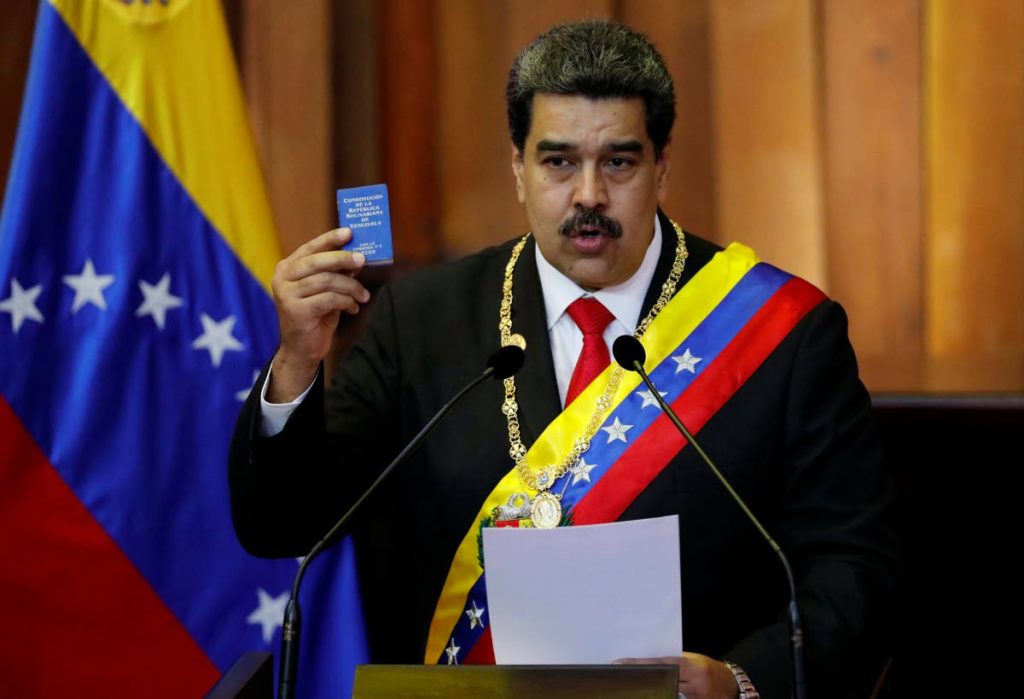Caricom shows support for Venezuela, calls on US to remove sanctions

Caricom has called on the US to remove sanctions limiting trade of oil and gas between smaller Caricom countries and Venezuela.
The Prime Minister told reporters of this during a post-Cabinet news conference at the Diplomatic Centre, St Ann’s on Thursday, reporting on the results of the 43rd Caricom Heads of State meeting held from July 3 to July 5.
Dr Rowley explained to reporters that Venezuela had, sometime ago, gone into an arrangement with Venezuela through an initiative called Petro Caribe to supply smaller Caricom states with oil. However, because of sanctions imposed on PDVSA, the Venezuelan state-owned oil company, by the US, the region was unable to benefit from the initiative, and it was shut down.
Rowley said that the OECS, a sub-unit in Caricom, got a commitment from the Venezuelan government to restart the initiative. But that can only happen if the sanctions are lifted, or some special waiver is given to conduct business with the region.
“Caricom has called on the United States to remove the restrictions so as to allow our small territories who have been benefiting from Petro Caribe to access the oil that Venezuela is making available.”
In May the Biden administration said it would slightly loosen sanctions on the country in an attempt to ease unrest between President Nicolas Maduro and opposition leaders which have fuelled the political and humanitarian crisis in the country.
In 2019 former president Donald Trump imposed sanctions on Venezuela ordering a freeze on all government assets in the US, and banned transactions with US citizens and companies.
Caricom also recognised the benefits of TT maximising its production of LNG and fertilisers if there is better access to natural gas. However, Rowley said the sanctions are also affecting TT’s ability to access that gas.
“We have everything in place. We have a terms sheet in place, we have a price arrangement in place, but we can’t access the gas across the border.”
Rowley said the Loran-Manatee field, which sits on the border between Venezuela and TT, and although it cannot access the gas in the Venezuelan territory, TT is utilising its portion of the field. Rowley noted that because of this situation, TT can only access 27 per cent of the field.
UN Secretary General Antonio Guterres was invited to the heads of state meeting where Caricom heads addressed the need to balance the need for transition to cleaner energy, and the responsible development of the region’s petrochemical sector.
“We took the opportunity to be able to say directly where we are in Caricom on this matter,” Rowley said.
“While we acknowledge our own vulnerability to the deleterious effects of climate change, we are in fact paying for other people’s pollution of the atmosphere.
“We have been arguing that there is funding for countries to cope with this new challenge. We argued that you can’t expect us with small economies, that after a hurricane that devastates a significant portion of GDP the next morning you have to report to the financial institutions on the same basis as developed countries.”
He said Caricom asked for special considerations with accessing funding in the event of natural disasters, and through preparation for natural disasters.
He said the region will not abandon its hydrocarbon development, and Caricom heads called for the region to be allowed to develop its hydrocarbons and compete in the existing market for as long as it exists without restriction.
“Other people who are far better off than we are, are deeply involved in it and we know that they will stay in it as long as it suits their national purpose,” Rowley said.
“We said that to the secretary general, and we think he understands that our situation is a little different.”

Comments
"Caricom shows support for Venezuela, calls on US to remove sanctions"